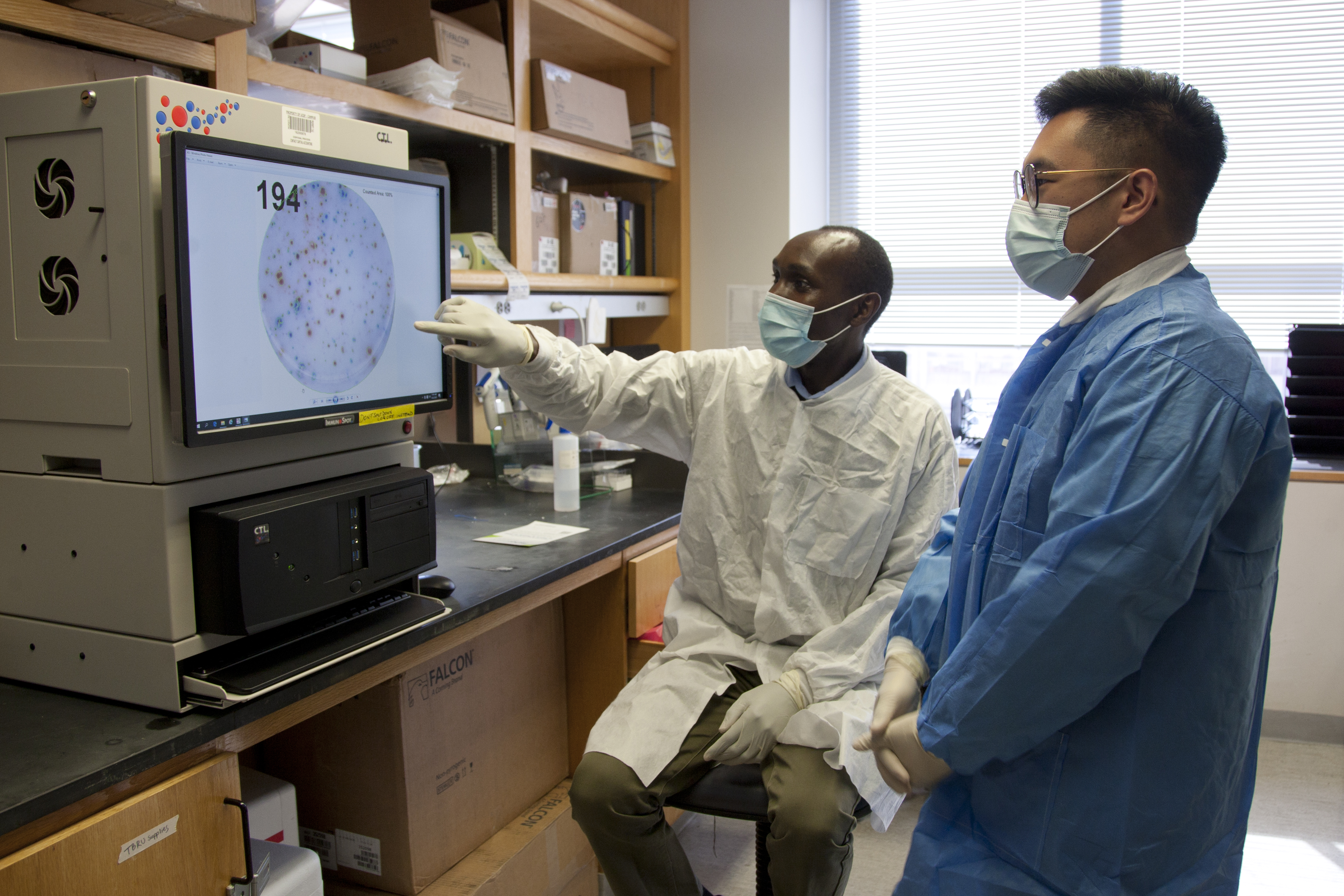Ernst Lab
The Ernst Lab's research focuses on immunity to Mycobacterium tuberculosis (MTB), to inform the rational design and development of new TB vaccines.

Our research includes basic studies of mechanisms of immunity and immune evasion in TB using animal models, and human studies of immunity to TB. Using animal models, we have identified cellular and molecular mechanisms employed by M. tuberculosis to evade recognition and elimination by T cell responses, and have defined the dynamics of cell trafficking, differentiation, and infection in vivo, to identify check points for preventive and therapeutic intervention in TB. In performing these studies, we have discovered unexpected diversity in the phenotypes and functions of the cells infected by M. tuberculosis in vivo and that explain how M. tuberculosis survives and replicates in professional phagocytic cells.
In human studies, we have discovered that in contrast to pathogens that employ antigenic variation to evade immunity and cause persistent infection, the human T cell antigens and epitopes of M. tuberculosis are highly conserved, even in strains that diverged from a common ancestor thousands of years ago. We have identified rare antigens of M. tuberculosis that show evidence of diversifying selection, and have initiated studies to test the hypothesis that T cell responses to those antigens are associated with superior protective immunity compared with T cell responses to conserved antigens.
